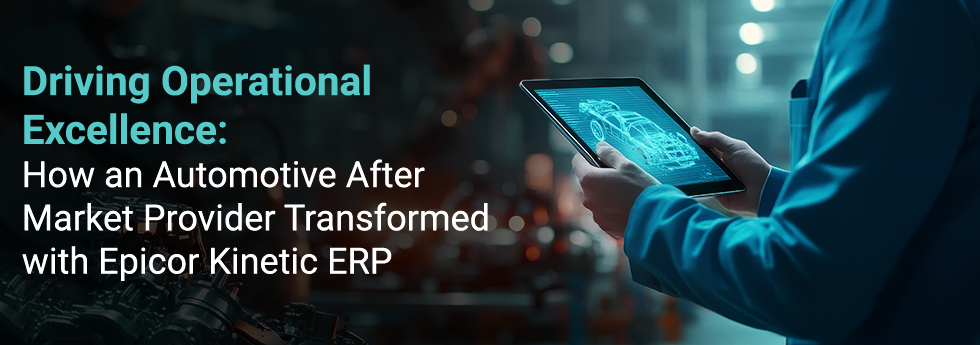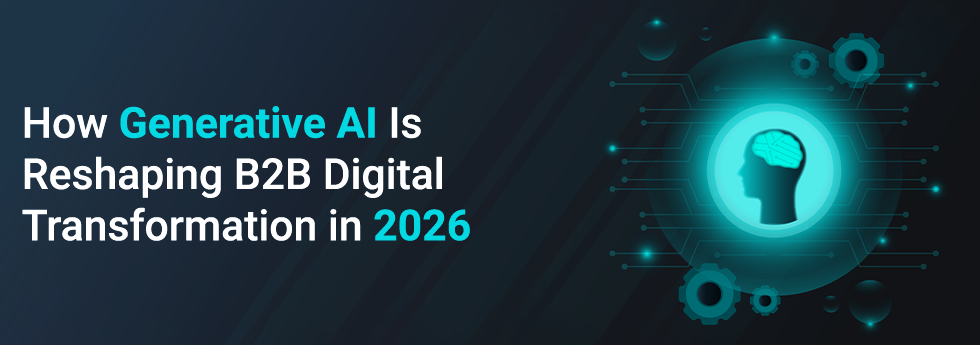
In today’s hyper-competitive B2B landscape, digital transformation is no longer optional, it is critical for survival. Enterprises are grappling with complex supply chains, fragmented customer experiences, and an overwhelming influx of data. Forward-looking enterprises realize that Generative AI is now central to survival and innovation, not simply a technology upgrade.
Generative AI: The Cornerstone of Transformation
Generative AI has emerged as a powerful enabler of transformation, helping businesses automate processes, make smarter decisions, and deliver highly personalized customer interactions.
Leading market research from McKinsey, Gartner, EY, KPMG, and Kearney shows that companies integrating Generative AI into their digital strategies are already achieving outsized advantages. Yet, many are still stuck at the experimentation phase, risking being left behind.
The Generative AI-Driven Transformation Process
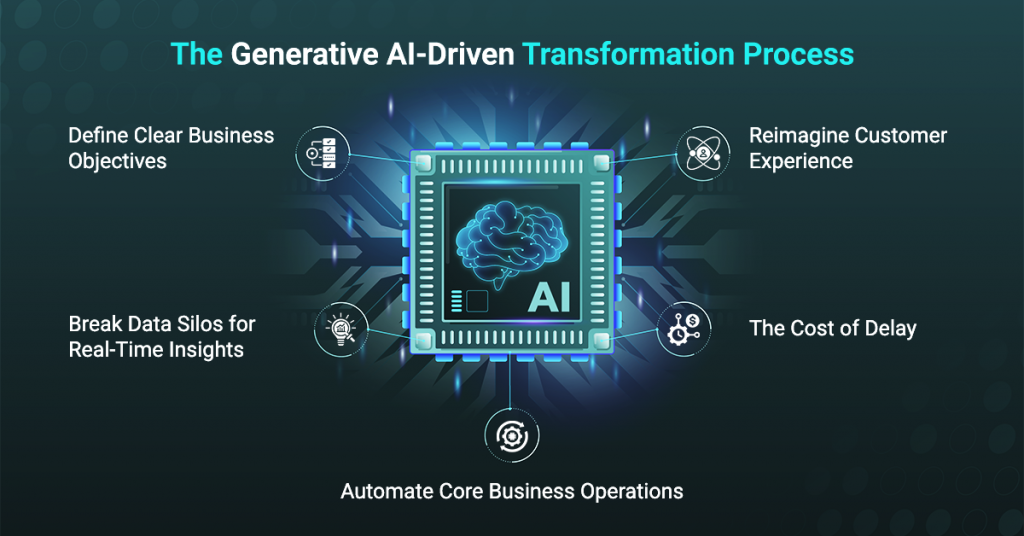
 Define Clear Business Objectives
Define Clear Business Objectives
Successful Generative AI adoption begins by aligning capabilities to measurable business outcomes—whether it’s accelerating revenue growth, speeding up decision-making, or enhancing customer satisfaction.
 Break Data Silos for Real-Time Insights
Break Data Silos for Real-Time Insights
GenAI breaks down silos, integrating data streams from ERP, CRM, supply chain, and operations into a unified dashboard.
This enables businesses to transition from reactive decision-making to a predictive, proactive approach, forecasting market trends, optimizing pricing strategies, and identifying emerging risks before they impact the bottom line.
 Automate Core Business Operations
Automate Core Business Operations
Leading industry studies highlight that automating key processes such as inventory management, order processing, and service workflows; drives significant gains in operational efficiency, accuracy, and cost reduction up to 25%.
Generative AI frees teams from repetitive tasks, empowering them to focus on high-value strategic activities that directly contribute to business growth.
 Reimagine Customer Experience
Reimagine Customer Experience
As customer expectations in B2B markets evolve, personalized and real-time interactions have become a baseline expectation.
Generative AI tools like virtual assistants, predictive service suggestions, and automated support enable businesses to deliver seamless, highly responsive customer experiences, boosting loyalty and competitive differentiation
 The Cost of Delay
The Cost of Delay
According to McKinsey, over 70% of AI projects fail due to poor strategy and integration missteps. But in 2026, inaction is an even greater risk. Businesses that postpone Generative AI adoption are widening the competitive gap, losing agility, market share, and relevancy to faster-moving competitors.
Why 2026 Is the Tipping Point
Generative AI is rapidly moving from pilot projects to core business capability.
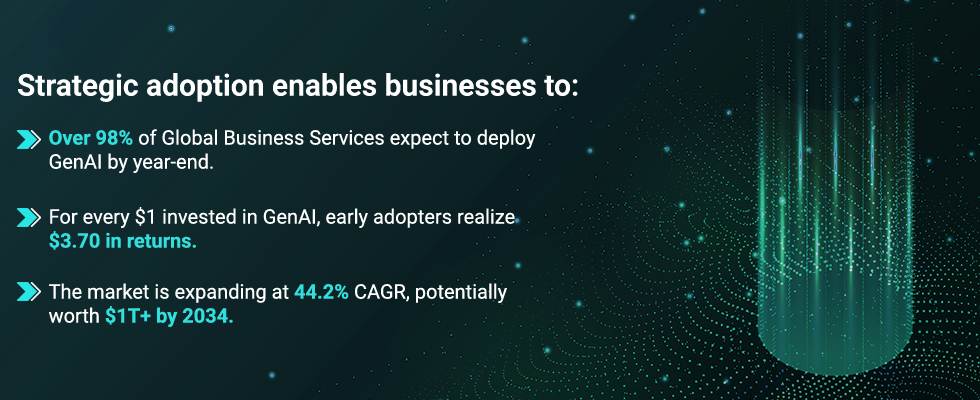
Strategic adoption powers:
- Make faster, smarter decisions with predictive insights
- Automate operations for greater efficiency
- Deliver personalized customer experiences at scale
Waiting increases the risk of falling behind in an increasingly digital economy.
Future-Proofing B2B Success with Generative AI
Generative AI is not just a technological upgrade, it is a fundamental shift in how B2B organizations operate, compete, and grow. By embedding AI-driven processes, intelligent automation, and real-time decision-making into the business core, enterprises are transforming uncertainty into opportunity.
The time to act is now.
Forward-looking companies are already leveraging Generative AI to unlock smarter decisions, enhanced efficiency, and more personalized customer experiences.
At RheinBrücke, we work alongside B2B leaders to translate this opportunity into real-world outcomes guiding strategy, ensuring seamless implementation, and enabling lasting business impact.
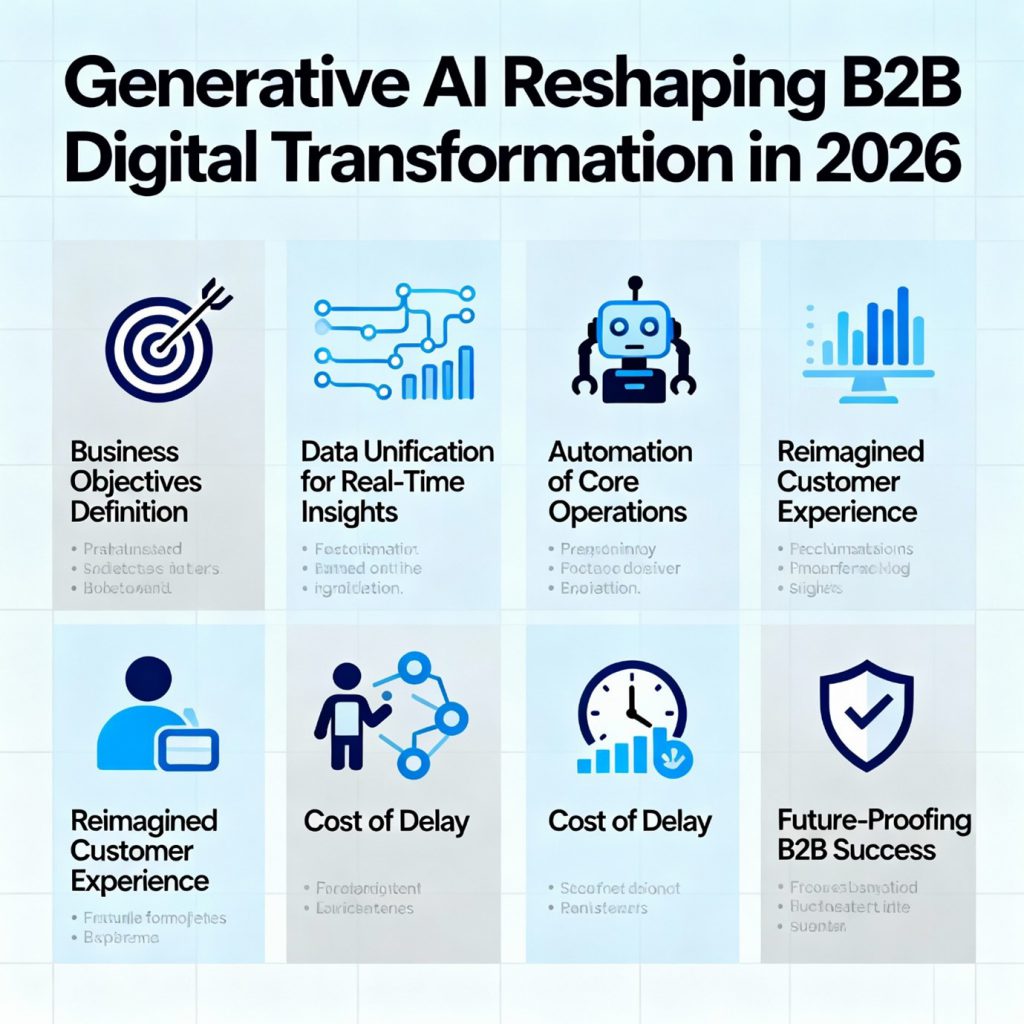
Reference link: https://www.amplifai.com/blog/generative-ai-statistics
https://www.imd.org/blog/digital-transformation/emerging-technologies/
https://meetanshi.com/blog/generative-ai-statistics/


